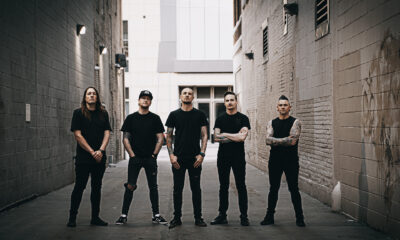Reviews
The Up Documentaries (#098)
“100 Films for 100 Rainy Days”

Directed by: Michael Apted, 1964-2006 » Region/Time: UK, documentary, 39, 52, 100, 136, 123, 139 and 180 minutes.
Starring: Tony Walker, Neil Hughes, Bruce Balden, Suzanne Dewey, Nicholas Hitchon, Jacqueline Bassett, Lynn Johnson, Susan Sullivan, Symon Basterfield, Paul Kligerman, Andrew Brackfield, John Brisby, Charles Furneaux, Peter Davies as themselves » Michael Apted as The Interviewer.
“Give me a child until he is seven, and I will give you the man.”
In each instalment of the Up documentaries, this Jesuit proverb is quoted and with each ensuing episode, it is both confirmed and refuted. Every seven years, starting in 1964 with a group of 14 seven-year-olds from across Britain, Michael Apted has returned to interview the same people to see how their lives and hopes have changed. In the most recent instalment, 2005’s 49 Up, the interviewees are now 49 years old.
More so than in North America, class segregation is a consuming issue in Great Britain. The original intention of the program (Seven Up!, 1964) was to examine the different life-paths offered to upper class children versus those of the lower class. This is especially apparent in a sequence in which the children are asked about their educational plans for their future. Three upper class children (Andrew, John and Charles) list off the secondary schools as well as which houses at which university (Cambridge or Oxford) they will be attending, while two lower class children (Symon and Paul) respond with “What’s a university?” The first instalment is a relatively straightforward interview session with these children, and we can see each child has their distinct personalities, including the Artful Dodger-like Tony (who wants to be a jockey), the strangely delicate Bruce (who wants to teach in Africa), the brainy and talkative Neil (who wants to be a rocket scientist or bus driver) and the shy farmer Nicholas (“Do you have a girlfriend?” “I don’t answer questions like that.”). Although originally intended to look at differences in class, in the commentary track on the 42 Up DVD, Michael Apted regrets that he did not have a more ethnically diverse cast, and also states that the series comments on the blooming of the middle-classes in England following World War II.

It is in the second (7 plus Seven, 1970) and third (21, 1977) instalments that things get really interesting, and the profound changes some of these children go through are both fascinating and unsettling. For an example, the shy Nicholas retreats into one of the most awkward 14-year-olds ever caught on film, only to be an out-going, brilliant nuclear physicist at 21-years-old. In the reverse, the talkative Neil is equally as outgoing at 14, although he displays some peculiar quirks, but at 21 is squatting in a flat in London, having been kicked out of University because the pressure to succeed was too great.
The story of Neil is one of the great biographies, as, by 28, he has clear mental disturbances, and lives in a shack in the highlands of Scotland (“Do you think I’m mad? I know I’m mad.”)—the series itself allowing his 7-year-old self to confront him with his own optimism and happiness.
With each passing series, the group seems to be, in many ways, in lockstep with one another. 28 Up (1985) concerns itself with settling into careers and marriages, 35 Up (1991) with children, infidelity and mortgages, 42 Up (1998) with happiness, friendship and contentedness. 49 Up not only deals with grandchildren and an acceptance of mortality, but also with the effects of taking part in the series itself. Many of the people are exceedingly bitter – Suzanne, Lynn and John especially. Charles dropped out after 21 and Peter dropped out after 28. In the UK, these people are very well known, due to the popularity of the show, and, for better or for worse, come to dread Mr. Apted’s knock on their door every seven years. In the later series, the wives, husbands and children of the original group also become characters in the branching network of these seven-year-olds’ lives.

My only caveat is that, if you watch all the films in quick succession, as you will be tempted to do, there is quite a lot of overlapping footage. The first three films are relatively short, but get progressively longer as the series unwinds. There have been a number of attempts to replicate the “Seven-Up” project in other countries, such as the USA and South Africa, but perhaps the most intriguing endeavour along these lines, is Richard Linklater’s ongoing film shoot for Boyhood, in which portions of the film were shot over a 12-year period–should be fascinating!
In his entry in his ongoing Great Films project, Ebert has this to say regarding the Up documentaries: “They…strike me as an inspired, even noble, use of the film medium. No other art form can capture so well the look in an eye, the feeling in an expression, the thoughts that go unspoken between the words. To look at these films, as I have every seven years, is to meditate on the astonishing fact that man is the only animal that knows it lives in time.”

How many people will each of us touch in our lives? How different are we from our childhood selves? Why am I me? Why am I here? How many films even bother to ask these questions, let alone attempt to answer them?
The series is still ongoing…
Up Next in the Film Canon: Four children try to survive on their own.
-

 Alternative/Rock6 days ago
Alternative/Rock6 days agoTom Walker Puts on Spellbinding Performance at Leeds O2 Academy
-

 Alternative/Rock2 weeks ago
Alternative/Rock2 weeks agoThe Warning Shake the Foundations of a Sold-Out Leeds Stylus [Photos]
-

 Alternative/Rock6 days ago
Alternative/Rock6 days agoThe Cruel Knives Headline Top Night of British Rock at Manchester’s The Lodge [Photos]
-

 Hip-Hop/Rap2 days ago
Hip-Hop/Rap2 days agoFormz: “I was always the confident kid in school, with a passion for entertaining and being the centre of attention..”
-

 Alternative/Rock5 days ago
Alternative/Rock5 days agoThe V13 Fix #012 w/ Dååth, Unearthly Rites, maybeshewill and more
-

 Alternative/Rock2 weeks ago
Alternative/Rock2 weeks agoThe V13 Fix #011 w/ Microwave, Full Of Hell, Cold Years and more
-

 Indie2 weeks ago
Indie2 weeks agoDeadset Premiere Music Video for Addiction-Inspired “Heavy Eyes” Single
-

 Interviews3 days ago
Interviews3 days agoKill The Lights Michael ‘Moose’ Thomas Talks Success, International Bandmates and more




